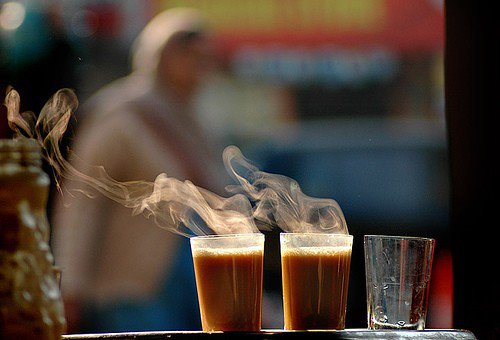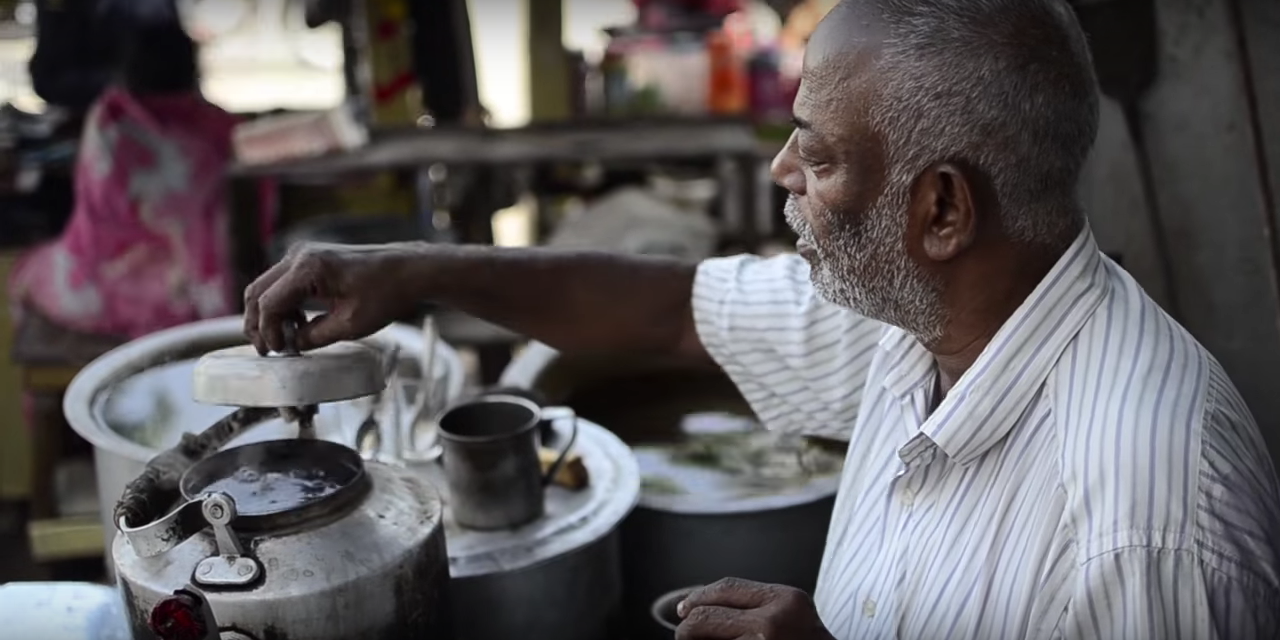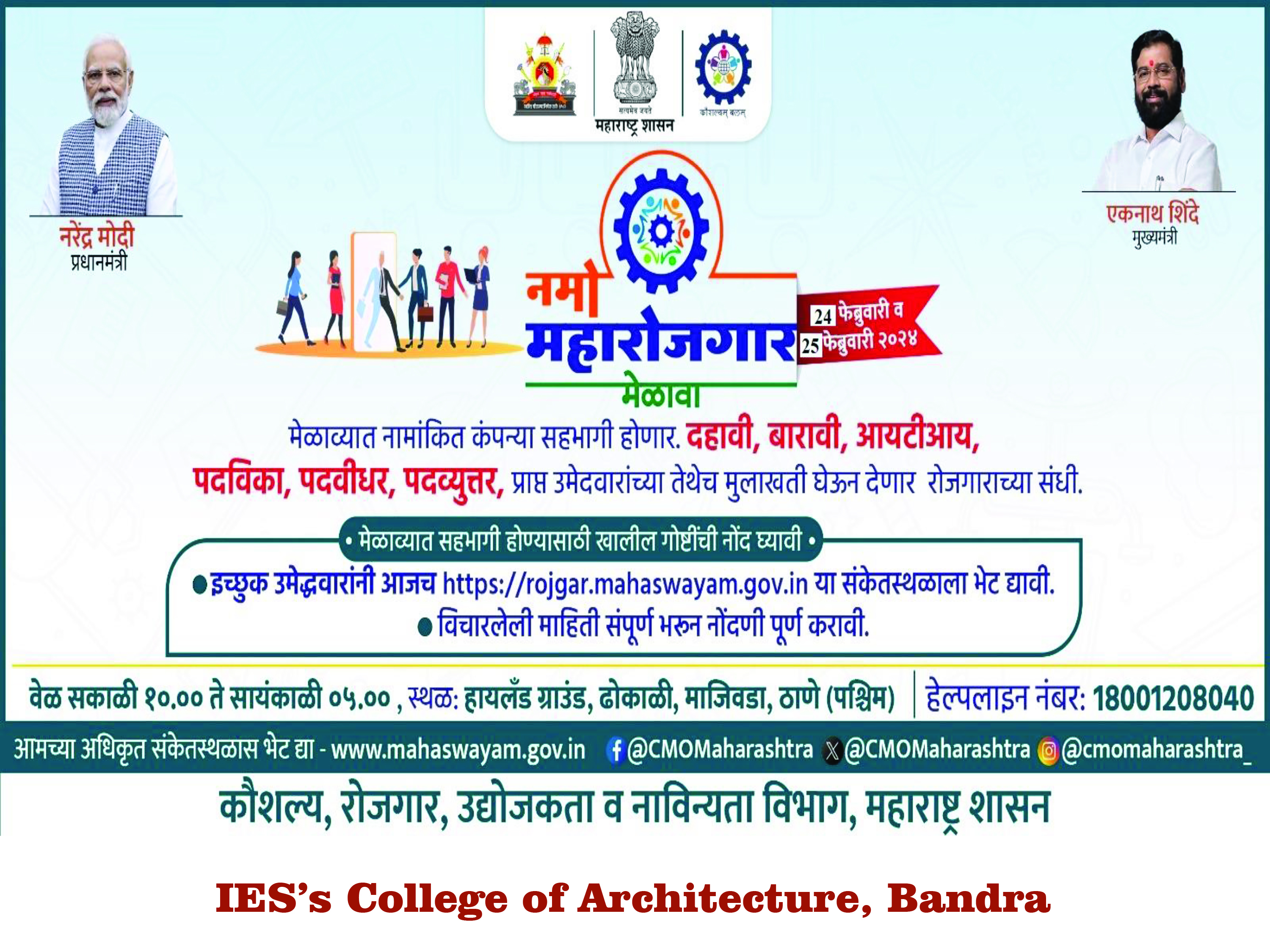It was another hectic day. Nonstop lectures, disagreements with professors, a new list of assignments to finish and the afternoon heat. It almost felt like the supernatural being had woken up that morning and decided to make it just one of those dreadful days again.
As I wandered inside my regular tea stall, I ordered my patent two cups of tea and one khari biscuit and sat down on the bench put together from just a few rocks and a concrete slab, picked up from the wasted debris at a construction site. Sipping on my third cup of tea since morning, I took my time to look around the tiny place. Although being a regular here, I never actually observed how it looked, the random elements put together, yet making each feel like it belonged there- the broken roof covered by layers of leaves fallen from the above trees, supports on bamboos which rest on the uneven round surface, a wooden framed counter covered in political posters to hide the holes made by the termites in it and a tiny cubicle just about enough to allow a lanky fellow to stand comfortably. It was a sight.
I was in the middle of my gazing when my ears picked up random sentences from a conversation taking place right behind me. “But why does he not want to work in a bank? It will pay him so well.” “Being an artist will not get him enough, he will not even have a proper job.” “Try explaining it to him, rationalize that wisdom lies in choosing a stable respected career. Only then will the society look up to him.” Coming from an artistic field myself, I felt like laughing at their ridiculous opinions.
Doctors. Engineers. Lawyers. Every Indian parent has the typical dream of “Mera Beta bada naam karega” which is usually consistent of a job in a multinational, a heavy pay check and a flat in main town Mumbai. But is that all that work is about? Earning enough to give your family a good view to wake up to? The mindset created today is such that a career is not even considered respectful unless it has some sort of standing at the global level.
This social mind block has resulted in the creation of different working classes with the fancier jobs gaining a superior stand next to the inferior small scale professions – introducing oneself as a banker creates a greater impression than calling one a shopkeeper. However what one tends to forget in all this hierarchical mess is the combined functioning of each of these professions in order to gain the desired outcome.
I looked at Bhagwant Singh selling cigarettes to a new customer who just walked in and smiled, thinking of all the other chai walas in the city as well. The tea stalls in Mumbai, although such a small sector, are sprinkled in every nook and corner of the city. Catering to the locals by the thousands every day, they run their business from an average four square metres space, sufficient for them to prepare as well as serve tea along with a variety of accompaniments. With tea being that one knot which connects most the citizens of the nation, it actually acts as a social hub outside various informal and formal work places.
The ethos at a chaiwala is quite interesting to watch. Commonly known as the “tapri”, their owners often have their struggle to narrate before they settled for making tea. Taking Bhagwant Singh for example, he along with two of his brothers had come to Mumbai with hopes in their eyes, leaving their small town near Nasik with promises to return successful. Unable to find any other source of income, they settled for the traditional stall business serving the customers of the vicinity.
Their stall indeed was at a perfect location. Located at the junction of a slum, middle class residences and a heavily populated educational institution, it experiences a large mass of varied kinds of people every day. With a small set up including a cigarette shop, tea counter, coupled with a few benches, the tapri forms a regular community meeting spot for the visitors. Surrounded by varied levels of stress all day, this place acts as the perfect recreation spot of the locals for that much needed 15-minute break. To sit with an affordable cup of tea and a biscuit costing only a few rupees, this place acts creates a unison between all the sections of the society, bringing them on a common platform without any sort of social discrimination.
Actually, coming to think of it, the scene at the chai wala on a random evening does indeed appear quite interesting. One gets to see the mix of the high society smokers visiting the nearby pubs, the tired students of the college grabbing a bite before going home, the teenage sons mingling in their groups as well as old uncles who discuss on the finer philosophies of life. Being regular visitors here, this place transforms from a tea stall to an “adda” spot for each of them, with Bhagwant Singh playing the role of no less than a friend.
The work of a chai wala is actually, much more than what people term it to be – just preparing and selling tea. It involves associating with diverse kinds of people visiting his stall and making them feel comfortable enough to return the next day. In all the mingling, the chaiwala himself gains knowledge from the wide variety of conversations topics discussed at his workplace, thus receiving a valuable insight to the outer, larger world. Thus although he probably isn’t as formally well-educated as a suited employee, he receives his fair share of knowledge through communication and interaction.
So why does one look down on people who spend their lives serving tea? Is it because they don’t have an air-conditioned work place and a formal dress code? Or is it because they do not deal with high priority global clients? Amid all this judgement, people fail to notice what that one cup of tea does to the thousands who visit a stall for it every day. That tea made from a fusion of leaves and cardamom, has the ability to rejuvenate and release all the high levels of tension created in the minds of the client.
The local feel to the place, the hot tea served in small glasses, the delight received from the munch of the crisp biscuits are all the reasons why a chai wala is such a popular industry in Mumbai since years. Their lack of work timings make them flexible to serve the regulars at their times of need, no matter what the hour may be. So in what way does this job classify as lowly? Why is it not respectable enough for a person to work at a tea stall as a career and serve the society in his own way?




